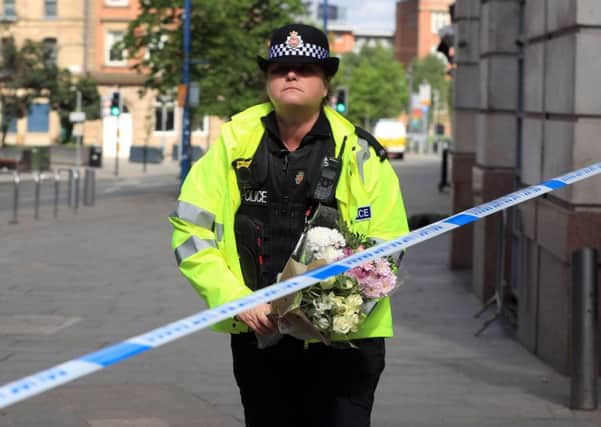Manchester terror attack should not be hidden from children, say psychiatrists


The Royal College of Psychiatrists said it is best to be honest with youngsters about the incident.
Parents should take into consideration the “age and sensitivity” of their child and let them lead the conversation, the College said.
Advertisement
Hide AdAdvertisement
Hide AdYoungsters should also be assured of the rarity of such attacks.
Dr Bernadka Dubicka, chairwoman-elect of the child and adolescent psychiatry faculty at the Royal College of Psychiatrists, said: “It is normal to feel upset after Monday night’s tragic attack.
“Such terrible events instil fear and sadness within all of us.
“We would not advise hiding your child from what may be on the news or social media. They will inevitably learn about it from their friends, so it’s best to be honest with them about what has happened.
Advertisement
Hide AdAdvertisement
Hide Ad“While taking into consideration the age and sensitivity of your child, let them lead the conversation. Respond to their questions or concerns, and help them to understand that although what has happened is awful, these events are extremely rare.
“Do not try to force conversations with your child about this, but be there for them should they wish to talk.
“Most children and young people will not show any long-term effects from these events. However, a small proportion, particularly those who have been more directly affected, may show symptoms of stress and trauma. For example, they may have problems sleeping, concentrating or may be more anxious.
“The Royal College of Psychiatrists offers information on our website for parents, carers and anyone who works with young people on dealing with traumatic stress. If parents are worried, they should contact their GP in the first instance.”